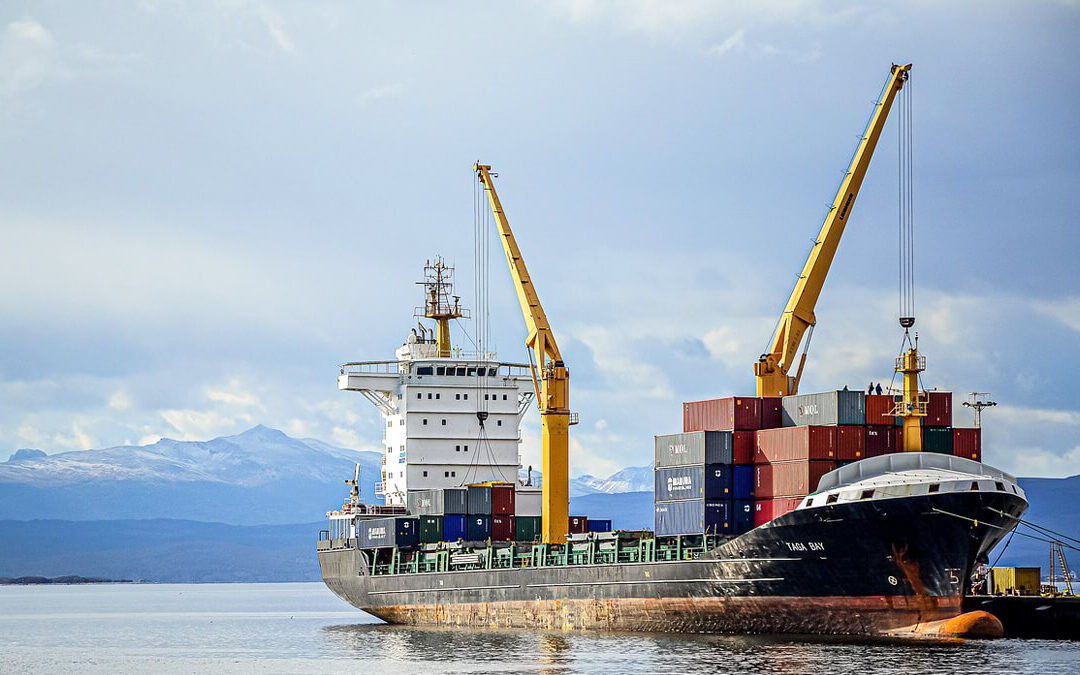If you’re running a business in the South West and you haven’t looked at your freight strategy in a while, 2026 might just be the year to do it.
With changing customer expectations, tighter delivery timelines, increased customs complexities, and a growing push toward sustainability, it’s clear that the logistics landscape is shifting fast.
Whether you ship out of Bristol, Plymouth, Exeter, or anywhere in between, your freight strategy could be the difference between staying ahead and falling behind in terms of keeping on top of costs.
The Rise of Smarter, More Localised Freight
One major shift we’re seeing is the growing value of local freight partners. In a world that’s been dealing with global disruptions, from Brexit to the pandemic and everything in between, many businesses are realising that having someone local, someone who knows the region, actually matters.
At RSJ International, we’ve seen a big rise in enquiries from companies across Somerset, Devon, and Cornwall looking for reliable, Bristol-based freight services. Using a local freight forwarder in Bristol can make a real difference in response times, costs, and peace of mind.
Why? Because local teams are faster to respond, easier to communicate with, and often more flexible when things don’t go exactly to plan.
Having a freight partner who understands the quirks of the A38, the port timings at Avonmouth, or the nuances of regional exports can make a real difference to your bottom line.
The 2026 Freight Forecast: What’s Driving the Shift?
Several key trends are influencing how businesses are approaching logistics in the South West:
| Trend | What It Means for Your Business |
|---|---|
| Increased Customs Checks | More paperwork, more delays – unless you’re prepared. |
| Rising Fuel Costs | Efficiency matters more than ever. Route planning is key. |
| Eco-Conscious Customers | Green logistics isn’t a buzzword – it’s becoming expected. |
| Tech Integration | Real-time tracking and digital documentation are becoming standard. |
| Driver Shortages | Reliable partners and planning ahead help avoid disruptions. |
Each of these factors adds a layer of complexity and opportunity. If you’ve got a streamlined, adaptable freight strategy, you’re already a step ahead.
Flexibility Over Fixed Contracts
Old-school logistics used to be all about long-term fixed contracts. But with things changing so quickly, many businesses now prefer more flexible freight arrangements.
You might have a peak season that needs extra capacity or an international shipment that pops up unexpectedly. Working with a freight company that can adapt, whether it’s full-load, part-load, road freight, or express, gives you breathing room to grow without being locked in.
We’ve helped dozens of businesses move from rigid arrangements to agile setups that work with their actual needs, not just their forecasts.
Exporters Need to Be More Strategic Than Ever
If you’re exporting from the South West, whether to Europe, the US, or further afield, the rules of the game are evolving.
It’s no longer just about getting goods out the door. Export success in 2026 will come down to planning documentation correctly, picking the right incoterms, using bonded warehouses smartly, and navigating post-Brexit trade deals with precision.
We’ve worked with companies exporting everything from machinery to artisan food products, helping them avoid common (and costly) mistakes, such as incorrect commodity codes or poorly timed handoffs that can trigger delays at customs.
(Read our guide to starting an import/export business in the South-West)
Sustainability Is Climbing the Priority List
More businesses in the South West are being asked about their environmental credentials – not just by consumers, but by suppliers, partners, and even banks.
Freight is a big piece of that puzzle. The UK’s Maritime Decarbonisation Strategy 2025 sets clear targets, such as a 30% reduction in lifecycle GHG emissions from shipping by 2030 and net zero by 2050, underscoring why green logistics is fast becoming essential
Switching to consolidated shipments, planning smarter routes, or choosing greener freight options such as rail, where possible, can all reduce your carbon footprint without increasing costs dramatically. At RSJ, we’re advising many clients on how to optimise logistics for sustainability without compromising service.
Local Knowledge Meets Global Reach
A big myth we often hear is that going with a smaller, local freight company means losing out on global reach. Not true.
RSJ International combines South West roots with a worldwide network of partners, ensuring your cargo gets where it needs to go, whether it’s Cardiff to Canada or Bridgwater to Bangkok.
That mix – local customer care and international logistics know-how is why so many businesses across the South West trust us with their freight.
So, What Should You Be Asking in 2026?
Here are a few questions worth asking yourself (or your current freight provider):
- Could we reduce delivery times with better route planning?
- Do we have a plan if something goes wrong in transit?
- Is our shipping process eco-conscious enough for our industry?
- Are we leveraging technology such as real-time tracking or digital docs?
If the answer to any of those is “I’m not sure”, it might be time for a chat.
Let’s Talk About Your 2026 Strategy
RSJ International is here to support South West businesses of all sizes. From urgent one-off shipments to long-term export planning, we take the time to understand what you actually need and how to deliver it efficiently, cost-effectively, and reliably.
2026 is already shaping up to be a year of change, but also one full of opportunity. Get in touch, and let’s make sure your freight strategy is ready for what’s next.
We support everything from one-off express shipments to full-scale export logistics. Our freight solutions for the South West are built to adapt as your business grows — and we’re right here when you need us.
Call us today on +44 (0)117 932 1160 or email info@rsj-international.co.uk

